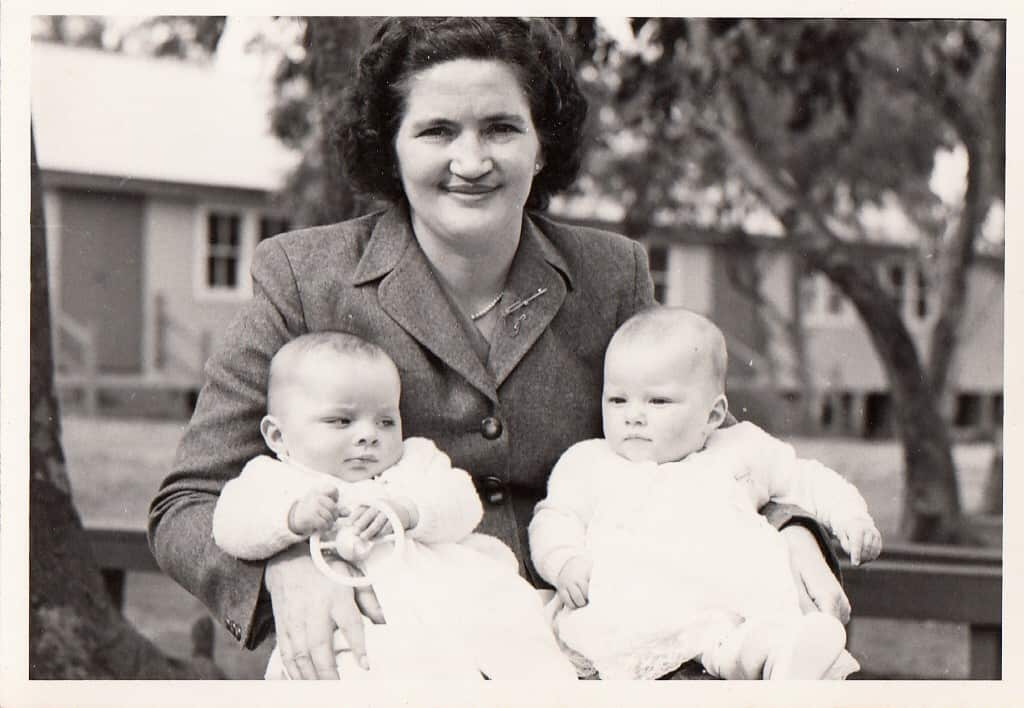Preview above: Remarkable stories of deciding to challenge wrongdoing, and the impact of doing so. Tuesday July 30 at 8:30pm on SBS and SBS On Demand.
It was a wintery afternoon in Canberra, 2004. Margaret Harrod was home from work, and preparing the house she shared with her husband and two children, for the arrival of her twin brother Michael.
They had been inseparable as children, but over the years had drifted apart.
That July, Michael left his home in South Australia virtually overnight, to travel to the nation’s capital and stay with his sister. His position as school principal at a religious college was no longer tenable, as historic allegations of child sexual abuse came to light in the newspapers.
Margaret knew they must be true.
As Michael settled in, sleeping in their converted study, old memories – long buried away – came to the surface for her.
It was around 1980, and they were visiting a family in Victoria together. He was a few years away from being ordained as a Catholic priest, and she was still a nun in the same order. As the mother prepared afternoon tea in the kitchen, they sat in the lounge room with her children. One of them, a little girl, climbed on to Michael’s lap for a hug, and he began inappropriately touching her.

“When that image of the little girl sitting on Michael's lap [came back to me] it was like a slap in the face,” says Margaret, speaking to Insight’s Jenny Brockie.
“Because I thought, oh my god, it's actually true, he was sexually abusing that little girl and I did nothing to protect her. I didn't speak up, I didn't say anything to my brother, I didn't say anything to the little girl's mum or dad.”
“I could not believe that my twin brother was actually behaving in a similar fashion to what my father had done [to me].”
Margaret’s father had sexually abused her from the time she was a toddler, until she left to join the convent at 21.
Seeing Michael behave the same way, she’d frozen; and buried the memory with all the others of her father’s abuse.
Now, in 2004, it was all coming back. And she was determined it would not stay hidden any longer.
When Michael left six months later, she decided to speak up about what she’d seen him do.
She knew she would probably lose her twin brother in the process.
“If I had been able to actually speak up at that time, I could have saved [the little girl] from basically a disastrous life and I could have saved, I believe, a lot of other children being abused by Michael too,” she says.
“I was damned determined now that I was going to speak up on behalf of that little girl and all the other victims.”
She also reported two priests who had sexually abused her when she was a child and young adult.
It was a process that would take years of reporting to authorities: to the Catholic Church’s internal investigation process, Towards Healing, and eventually to the police.
Her brother has since pleaded guilty and been convicted of multiple sexual abuse offences. He is still serving a seven year, six month prison sentence.
“I don’t regret the decision, and I never have, as hard as it’s been,” says Margaret.
“Michael offended. He ruined the innocence of many young peoples’ lives, and effectively he needs to be held accountable for the wrongs that he’s done.”
Margaret shares her story as part of Insight’s look at how people decide whether to speak up about something they think is wrong – and what the impact of that decision can be.
Insight is Australia's leading forum for debate and powerful first-person stories offering a unique perspective on the way we live. Read more about Insight
Have a story or comment? Contact Us


